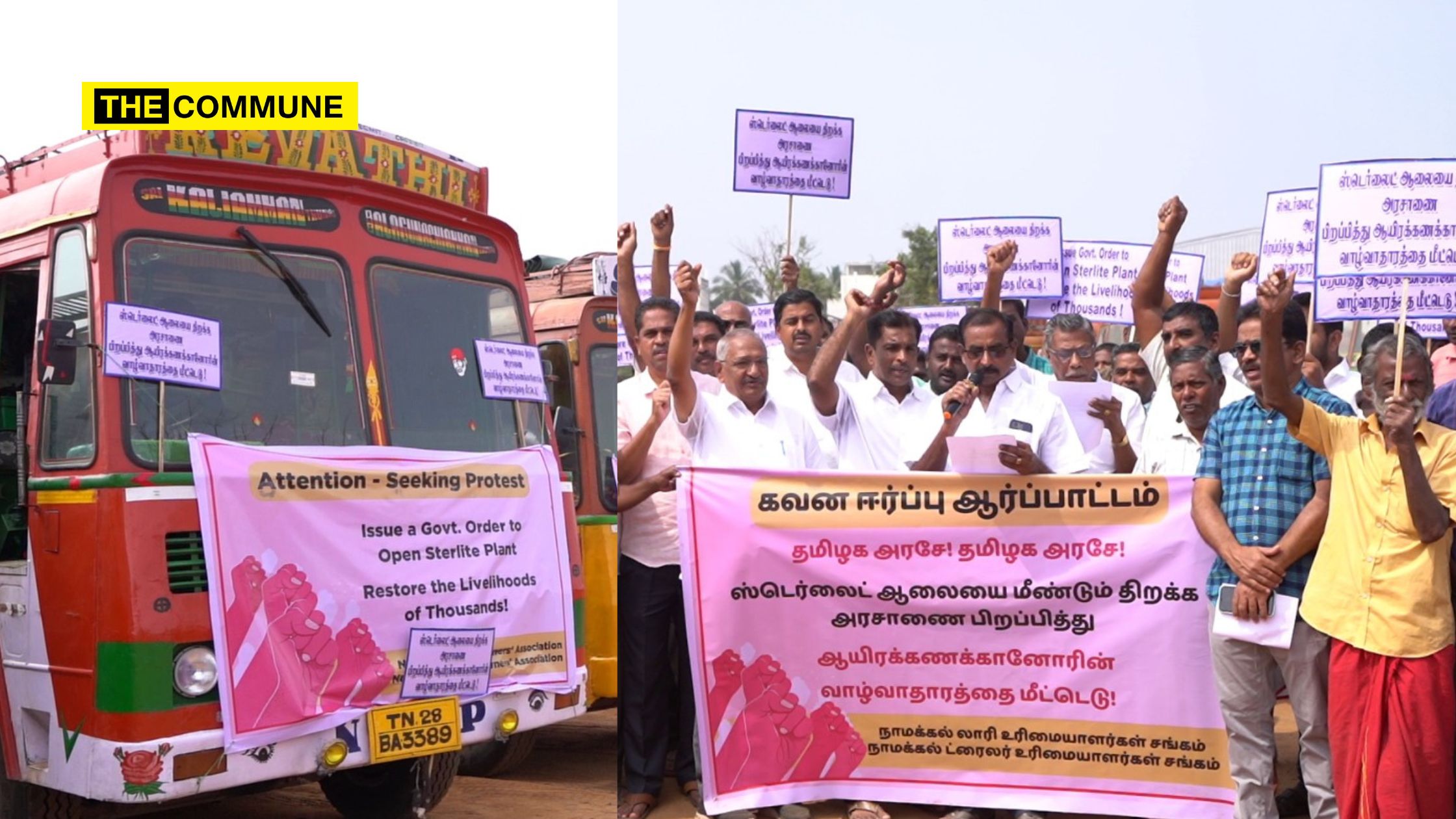
On 6 January 2024, the Namakkal Lorry Owners’ Association and Namakkal Trailer Owners’ Association organized a protest to draw attention to the severe economic repercussions faced by the freight and logistics sector following the closure of the Sterlite Copper plant in Thoothukudi. The truck community in Namakkal had played a key role in supplying trucks and trailers to the plant during its years of operation.
The copper smelting plant was shut down in 2018 after sustained protests from local residents, who raised concerns about pollution and its adverse health effects on the surrounding areas.
The closure of the plant has had a cascading effect, not just on the transport sector, but also on the wider local economy. Around 6,500 trucks were directly linked to the operations of Sterlite Copper, with approximately 430 trucks needed daily to transport over 9,000 tonnes of material produced by the plant. According to K Arul, President of the Namakkal Trailer Lorry Owners Association, the shutdown has led to widespread job losses and economic hardship for thousands of families.
Around 500 people, including truck owners, drivers, helpers, and more than 150 lorries, participated in the protest. They voiced concerns over the growing difficulties faced by workers, business owners, and their families, who are struggling with reduced opportunities and unmanageable operating costs.
During the plant’s peak, over 1,000 trucks operated daily, providing a vital source of income for many in the region. However, following the closure, more than 600 lorry owners have been forced to transition into driving, further exacerbating the unemployment crisis. The daily economic loss of over ₹10 crore has left many individuals and families burdened by mounting debt and financial instability.
The protest highlighted that the reduction in transportation services is affecting inter-state trade and industries that depend on reliable supply chains.
In light of these issues, Arul called for a special Government Order to ensure that the plant could resume operations under strict environmental supervision. He suggested that this could include implementing advanced emission control technologies similar to those used in the trucking industry, aimed at minimizing environmental damage while allowing the plant to operate effectively.
(With inputs from Business Line)
Subscribe to our channels on Telegram, WhatsApp, and Instagram and get the best stories of the day delivered to you personally.




